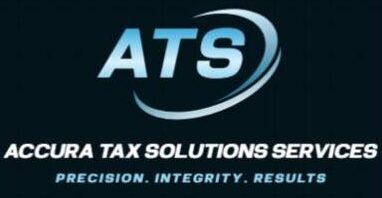Trust Registration
A trust is a legal arrangement in which the owner (the settlor) transfers assets—such as cash, shares, or other valuables—to another party (the trustee) to manage for the benefit of designated beneficiaries. Trusts are generally classified into two main types:
Private Trust: Established for the benefit of specific individuals or a defined group.
Public Trust: Created to serve the general public or a broader section of society, often for charitable or religious purposes.
Trust Registration

Trust Registration
Call experts
9729035064
Why Register a Trust?
Under the Public Trust Act, which is applicable across various states in India, registering a trust is mandatory in the following cases:
When the trust is established for charitable or religious purposes
When there is a transfer of immovable property to the trust’s name
A registered trust is also eligible for tax benefits as specified under the Income Tax Act, particularly Section 12A (for income exemption) and Section 80G (for donor tax benefits).
Benefits of Trust Registration:
Legal recognition under Indian law
Eligibility for income tax exemption under Sections 12A and 80G
Enhanced credibility with donors, government bodies, and financial institutions
Transparency in managing public donations and grants
Establishment of a Trust
To establish a trust, the following components are required:
Author / Founder / Settlor: The individual who creates the trust
Managing Trustee(s): Responsible for the day-to-day administration
Other Trustees: Support the governance and oversight of the trust
Maximum Number of Trustees: The Board of Trustees shall consist of no more than 21 members to form a valid quorum
Trust Compliances Post Registration
After registration, the trust must fulfill several statutory and financial obligations:
✅ Obtain PAN card for the trust
✅ Maintain proper books of accounts and financial records
✅ File annual Income Tax returns
✅ Apply for a Shops and Establishment License (if employing staff)
✅ Register for Professional Tax (if applicable)
✅ Obtain GST Registration (if applicable based on turnover)
Tax Exemption Eligibility: A Common Misconception
There is a common belief that all charitable trusts are automatically exempt from taxes. However, this is not true. Like any other legal entity, a trust is liable to pay taxes unless it has obtained:
Section 12A Registration – for income tax exemption on surplus income
Section 80G Certification – allowing donors to claim deductions on donations
These registrations must be secured from the Income Tax Department to lawfully enjoy the tax benefits.
Online Trust Registration – A Detailed Process
Vakilsearch offers a streamlined and efficient solution for registering a trust online, enabling individuals and organizations to complete the process with ease and legal accuracy. Here’s a step-by-step guide to how it works:
Step 1: Drafting the Trust Deed
The process begins with the Author or Settlor of the Trust preparing a legal document called the Trust Deed (also known as a Deed of Trust). This deed serves as the foundation of the trust and must include the following key details:
Name and address of the trust
Name(s) and address(es) of the settlor and trustees
Objectives of the trust
Powers, duties, and responsibilities of the trustees
Mode of appointment, removal, and succession of trustees
Guidelines for managing trust assets
Details of the beneficiaries (in case of a private trust)
Duration and governance structure of the trust
Step 2: Submission of the Registration Application
Once the Trust Deed is finalized and duly signed by the settlor and trustees (usually in the presence of two witnesses), the next step involves submitting the Trust Registration Application to the Registrar of Trusts.
The application must include:
The original Trust Deed and a few photocopies
Photographs and ID proofs of all trustees and the settlor
PAN Card of the trust (if already obtained)
Address proof of the registered office of the trust
Step 3: Selection of Jurisdiction
The jurisdiction for trust registration is typically determined by the location of the trust’s registered office. The application should be submitted to the Registrar of Trusts in that specific area.
Step 4: Verification and Certificate of Registration
After submission, the Registrar will verify the documents and may call the trustees and settlor for an in-person verification or online appearance (in some states). Once verified, the Certificate of Trust Registration is issued, officially recognizing the trust as a legal entity.
Why Choose Vakilsearch for Online Trust Registration?
✔ Expert legal drafting of the Trust Deed
✔ End-to-end online documentation support
✔ Liaison with the Registrar of Trusts
✔ PAN & tax exemption application assistance (Section 12A & 80G)
✔ Transparent pricing and quick turnaround
Documents Required for Trust Registration
To successfully obtain a Trust Registration Certificate, the following documents must be submitted at the time of registration:
Trust Deed (Fully Drafted)
A properly prepared and signed Trust Deed, outlining the objectives of the trust, roles of trustees, governance structure, and other key provisions.
Proof of Registered Office
Any one of the following:
Rental Agreement along with the landlord’s No Objection Certificate (NOC), or
Ownership Document (if the premises is owned by the trust or the founder)
Identity Proof of the Founder / Settlor
Valid government-issued ID such as:
Aadhaar Card
PAN Card
Passport
Voter ID
Driving License
Identity Proofs of Two Witnesses
Any government-recognized ID of two individuals who will witness the signing of the Trust Deed.
✅ Pro Tip:
Ensure that all documents are self-attested and that originals are carried for verification (if physical submission is required in your jurisdiction). Digital submissions may require scanned, high-resolution copies.
Contents of a Trust Deed
The Trust Deed is the most vital legal document in the formation of a trust. It defines the purpose, structure, and governance of the trust, serving as a legal blueprint that guides its operations from inception to dissolution.
Below are the essential clauses typically included in a standard Trust Deed:
1. Name of the Trust
Specifies the official name under which the trust will operate.
2. Registered Office of the Trust
Indicates the physical address of the trust’s registered office, which determines its jurisdiction for registration and legal compliance.
3. Area of Operation
Defines the geographical scope in which the trust will carry out its activities (local, state-wide, national, or international).
4. Objectives of the Trust
Clearly outlines the mission, vision, and purpose of the trust—whether charitable, educational, medical, religious, or otherwise.
5. Details of the Author/Settlor
Includes the name, address, and personal details of the individual establishing the trust.
6. Corpus or Assets of the Trust
Describes the initial capital or property endowed to the trust by the settlor to begin its operations.
7. Details of the Board of Trustees
Provides names, designations, and roles of the trustees responsible for managing the trust.
8. Quorum and Terms of Trusteeship
Specifies:
The minimum number of trustees required to conduct official meetings (quorum)
Their qualifications, tenure, and conditions for appointment or removal
9. Powers and Functions of the Trustees
Outlines the authority, responsibilities, and decision-making powers of the Managing Trustee and other members of the board.
10. Amendment and Dissolution Clauses
Details the procedures for:
Amending the Trust Deed in the future
Closing or dissolving the trust
Handling of assets upon dissolution
Applicability of the relevant Trust Acts and legal provisions
A carefully drafted Trust Deed not only ensures smooth functioning but also enhances the legal credibility of the trust, especially when applying for tax exemptions, bank accounts, or foreign contributions.
Accura Tax Solutions – Trust Registration Made Simple
We offer comprehensive support for Trust Registration, guiding you through every step of the process with expert legal and tax assistance. Whether you’re registering a new trust or transitioning an existing one, Accura Tax Solutions ensures a smooth and compliant journey.
Our Simple 6-Step Process
✅ Support in Transitioning a Trust Registration
Our experts help you move from informal or partial setups to fully compliant registered trusts.
📝 Purchase a Plan for Expert Assistance
Choose a suitable plan based on your needs—affordable, transparent pricing for individual and organizational trusts.
❓ Add Queries Regarding the Conversion
Have specific questions? Share them with our experts for personalized answers and legal clarity.
📁 Provide Documents to Accura Tax Solutions Expert
Submit required documents like the draft trust deed, ID proofs, address proof, and more. We’ll guide you on what’s needed.
🔧 Complete All Other Required Actions
From notarization to Registrar appointments—we’ll coordinate every compliance and legal step.
🎯 Get Your Work Done!
Sit back and relax while we handle the registration process end to end. You’ll receive your Trust Registration Certificate hassle-free.
💼 Why Accura Tax Solutions?
Experienced professionals in trust and tax laws
End-to-end legal documentation and filing support
Transparent pricing with no hidden costs
Fast, reliable, and compliant process
Ready to register your trust the right way?
Let Accura Tax Solutions take care of the paperwork, compliance, and peace of mind.
Why choose us?
Why Choose Accura Tax Solutions for Trust Registration?
At Accura Tax Solutions, we combine legal precision, industry experience, and personalized service to deliver a seamless Trust Registration experience. Here’s why we’re the preferred choice for individuals, families, and organizations:
✅ Expert Legal & Tax Advisory
Our team of seasoned professionals brings deep expertise in trust law, tax compliance, and non-profit regulations, ensuring your trust is legally sound and tax-efficient.
🛠️ End-to-End Assistance
From drafting the Trust Deed to filing with the Registrar, applying for PAN, and securing 12A & 80G registration—we manage the complete process for you.
📄 Customized Documentation
Every trust is unique. We tailor your documents based on your objectives—whether it’s a charitable, religious, educational, or private family trust.
💼 Transparent & Affordable Pricing
No hidden charges. Our packages are designed to suit all scales—whether you’re a small family trust or a large public charitable organization.
⏱️ Timely Execution
We understand that delays can be costly. Our streamlined online process and expert coordination ensure your trust is registered accurately and on time.
🧾 Post-Registration Compliance Support
Our services don’t end at registration. We help you stay compliant with bookkeeping, IT filings, license applications, and more.
📞 Your Trust, Our Responsibility
With Accura Tax Solutions, you gain a reliable partner committed to making your trust legally valid, financially compliant, and publicly credible.

